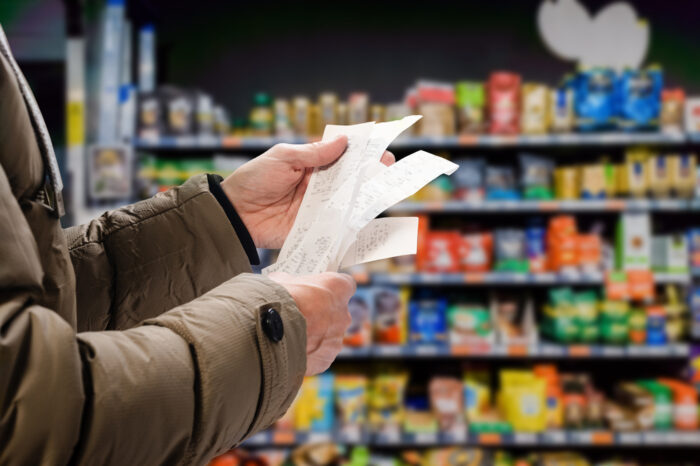Grocery price inflation slid down to 4.5% for the four weeks leading to 17 March – the lowest level since February 2022, data reveals.
This signifies a further dip from 5.3% logged at the end of February. While Easter is soon to be celebrated earlier this year, £88m more was spent on eggs and other seasonal treats compared to the same three-month period last year.
Shoppers also looked for quality bargains in supermarkets, as sales of premium own-label goods grew to 16.1% – its quickest rise in almost three years, according to analytics firm Kantar.
Meanwhile, many also opted for branded goods over own-label products this month, but plenty of shoppers remained uncomfortable with their financial situation heading into Easter.
Despite the rate of prices easing, a quarter (23%) of British households still considered themselves to be financially struggling, as eight in 10 (78%) chose to buy cheaper groceries and 68% used promotions to keep their shopping costs down. A total of £605m more was spent on deals this month than in March 2023, too.
Easter egg sales drive a boost in spending
Fraser McKevitt, head of retail and consumer insight at Kantar, said the number of families “feeling the squeeze” is the same number as in November last year.
But this hasn’t stopped a huge surge in spending on Easter-related goods. McKevitt said: “With Easter on the horizon, consumers have been stocking up on classic seasonal treats, with a quarter of people picking up four or more items when buying chocolate eggs.”
“This rises to 29% for shoppers aged over 65, suggesting that many grandparents are planning to indulge their families this weekend.”
McKevitt added: “People in Wales and the North of England are among the biggest spenders, shelling out £14.18 and £13.84 on Easter eggs on average respectively in the past three months. Volume sales of hot cross buns are also up by 15% versus last year.”
The impact those shopping habits had on the supermarkets was that Ocado continued as the fastest-growing retailer, which owed many of those sales to a sustained voucher campaign. The online grocer grew sales by 9.5%, which flew past the total online market, which rose by just 6.6%.
Morrisons celebrates a full year of growth
Only Ocado and Waitrose registered an increase in shoppers for the first three months of the year.
The two biggest hitters in the supermarket industry, Tesco and Sainsbury’s, grew their year-on-year sales by 5.8% and 6.7%.
Morrisons has had a successful 12 months, with growth continuing throughout the year, boasting 8.7% of the market.
Budget retailers Lidl and Aldi grew sales by 3.1% and 8.8%, leaving the stores with a 9.8% and 7.8% share of the market. However, in the battle of the bargains, last month Aldi was once again named the cheapest supermarket in the UK.





